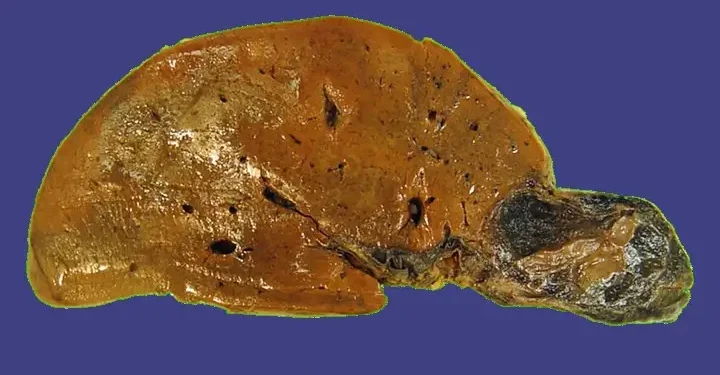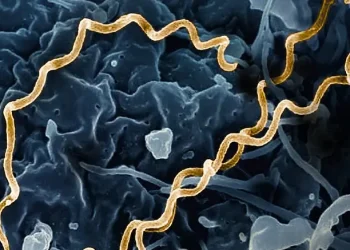Obesity isn’t just about willpower or calories; it’s deeply connected to how our bodies’ internal clocks sync with our daily habits.
Researchers at the University of Pennsylvania have discovered that liver-brain communication, regulated through the hepatic vagus nerve (HVN), plays a crucial role in maintaining healthy eating patterns.
This groundbreaking study sheds light on why disrupted eating schedules lead to obesity and metabolic disorders.
How Circadian Rhythms Influence Eating Patterns
Circadian rhythms are the body’s internal clocks, influencing everything from sleep cycles to metabolism. While most people associate these rhythms with sleep, they also regulate eating behaviors. The liver’s clock genes coordinate with the brain to control when and how much we eat.
However, when these clocks fall out of sync, as seen in shift workers or frequent travelers, eating patterns can become erratic, increasing the risk of weight gain and metabolic diseases.
The study by Dr. Mitchell Lazar’s team involved engineering mice without two key clock components—REV-ERBα and REV-ERBβ—in their livers.
These “double knockout” mice exhibited unusual eating behaviors:
- They consumed more food during the day, which is atypical for nocturnal animals.
- Their overall daily food intake significantly increased, disrupting their natural circadian rhythm.
These findings reveal a direct link between the liver’s clock and eating behaviors, offering a new perspective on obesity prevention.
The Role of the Hepatic Vagus Nerve (HVN)
The hepatic vagus nerve (HVN) is the main communication channel between the liver and the brain. By transmitting signals from the liver, it helps regulate eating patterns and energy balance.
When researchers severed the HVN in mice, the altered eating patterns caused by disrupted liver clocks were reversed.
Further findings include:
- High-fat diets can disrupt liver clock gene activation, mirroring the eating pattern changes seen in engineered mice.
- Severing the HVN in mice fed a high-fat diet prevented these shifts, leading to less weight gain.
This discovery suggests that the HVN could be a target for future obesity treatments, especially for individuals with disrupted eating schedules due to lifestyle factors.
Implications for Metabolic Health
This research highlights the liver’s pivotal role in metabolic regulation and its impact on eating behaviors. Disrupting liver-brain communication through circadian misalignment or diet not only leads to obesity but also raises the risk of related conditions like diabetes and cardiovascular disease.
By understanding how the HVN influences our circadian rhythms, researchers can develop therapies aimed at restoring balance.
These interventions could be particularly beneficial for people struggling with irregular work schedules or those prone to late-night eating habits.
Findings of the Study
Aspect |
Discovery |
Implication |
|---|---|---|
| Liver clock gene deletion | Altered eating patterns in mice, more daytime eating, and increased intake | Circadian rhythms directly impact eating behavior |
| Severed HVN | Reversed eating pattern disruptions caused by liver clock misalignment | HVN is crucial in liver-brain communication affecting eating patterns |
| High-fat diet impact | Disrupted liver clock genes, leading to erratic eating and weight gain | Diet influences circadian rhythm, increasing obesity risk |
Future Directions in Obesity Treatment
While this research is still in its early stages, the implications are far-reaching. Potential future therapies may include:
- Non-invasive interventions targeting the liver-brain communication pathway.
- Dietary recommendations designed to align eating patterns with natural circadian rhythms, reducing the risk of metabolic disorders.
These insights could revolutionize how we approach weight management, shifting focus from simple calorie counting to addressing underlying biological mechanisms.
Food for Thought
The connection between liver-brain communication and eating patterns offers a fresh approach to tackling obesity. By understanding the role of circadian rhythms and the hepatic vagus nerve, future therapies could help millions manage their weight more effectively.
As this research advances, it may pave the way for innovative treatments that go beyond traditional diet and exercise strategies, providing hope for those affected by obesity-related health issues.
Sources: THX News, Science Daily, UN Health Research, Nature, News Medical, Penn Today & National Institutes of Health.









